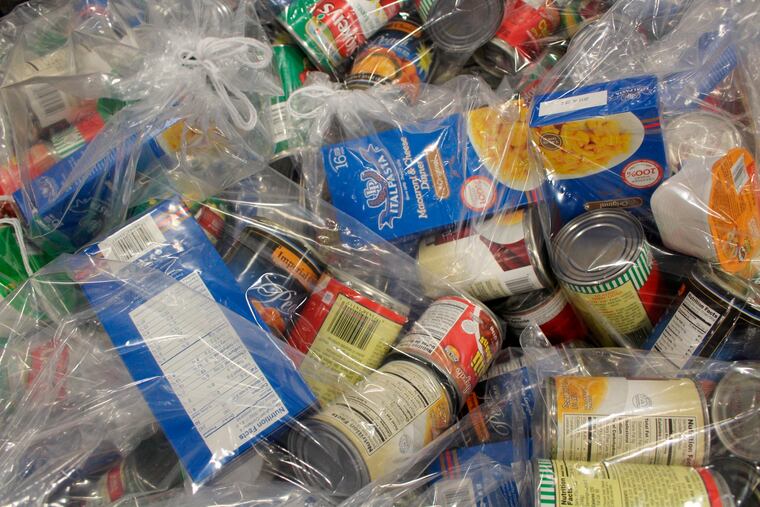Why is it OK there are so many hungry among us? | Editorial
Congress and other lawmakers continually work on ways to make it harder for people in need to get food – establishing new restrictions for food stamps, like time limits and stringent work requirements.

Maybe a day is coming when the holidays and their bounty don't provide a perfect opportunity to reflect on the problem of hunger in this country and city, but we're not optimistic. The problem of fellow citizens going hungry is so persistent that it's depressingly clear that solving it on a large scale is not a priority.
In general, the improving economy has led to declines in the hunger rate — except for Philadelphia. Earlier this month, Hunger Free America released a report that found hunger in the city is actually on the rise, increasing 22 percent over the last six years. That means one in five people here live in households that are "food insecure," meaning that can't always afford to buy food. This is counter to trends in the rest of the country, which have seen decreases in hunger as the economy has improved and jobless rates have declined.
The structural problems facing this city, which have led to stubbornly high poverty rates, require large-scale solutions.
But making sure people have food should be simple.
And larger solutions to poverty – higher wages and better education – become less effective for those too hungry to focus or concentrate.
Instead, Congress and other lawmakers continually work on ways to make it harder for people in need to get food – establishing new restrictions for food stamps, such as time limits and stringent work requirements.
One recent idea that fortunately never lived to see the light of day was sending "Harvest Boxes" of prepacked food to people instead of sending them food stamps. The current Farm Bill, which sets food stamp appropriations and policy, is proposing to establish new work requirements that could eliminate or decrease food stamp access to two million people, according to the Center for Budget and Policy Priorities. Every year, Republican lawmakers – in Congress, and at state levels – seem to ramp up their suspicious and miserly approach to those who are struggling, claiming fraud where it doesn't exist and insisting that their narrowing of food stamp benefits promotes "dignity and responsibility."
Try feeding dignity to a hungry 5-year-old.
In the absence of government supports, communities create ground-level solutions, such as donation-driven food banks. But too often, what should be emergency solutions to hunger become permanent. Ironically, one of the sources of that food will soon be the U.S. Department of Agriculture, which is about to unleash $1.2 billion worth of food to food banks as a result of tariffs that have made it harder for U.S. farmers to sell their goods abroad.
We shouldn't have to rely on failures in one area of policy to compensate for our failure to provide citizens with basic needs.
While Philadelphia has a persistent hunger and poverty problem, it is also the center of research and programs, such as Drexel's Center for Hunger-Free Communities, that can provide insights into a complex problem.
But progress will be difficult unless we grapple with a basic question: When did society decide it was all right to have our fellow citizens not have enough to eat?